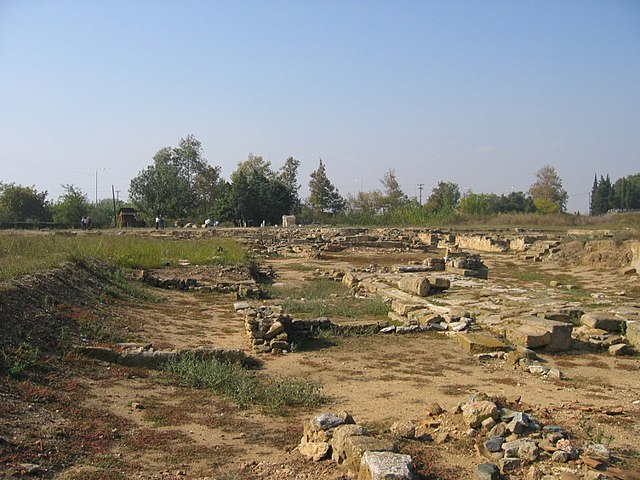Greek colonisation refers to the expansion of Archaic Greeks, particularly during the 8th–6th centuries BC, across the Mediterranean Sea and the Black Sea.
Illustration of an Archaic Greek ship on pottery, c. 520 BC
The Argonautica, the myth thought to pertain to the bold nautical expeditions of this period
Ruins of Abdera, a classical city of Thrace, in present-day Greece
The Temple of Concordia, Valle dei Templi, in present-day Italy
Archaic Greece was the period in Greek history lasting from c. 800 BC to the second Persian invasion of Greece in 480 BC, following the Greek Dark Ages and succeeded by the Classical period. In the archaic period, Greeks settled across the Mediterranean Sea and the Black Sea: by the end of the period, they were part of a trade network that spanned the entire Mediterranean.
The gymnasium and palaestra at Olympia, the site of the ancient Olympic games. The archaic period conventionally dates from the first Olympiad.
Ruins of the Temple of Apollo within the polis of Ancient Corinth, built c. 540 BC, with the Acrocorinth (the city's acropolis) seen in the background
The lawgiver Solon reformed the Athenian constitution, which led to significant developments in Greece at the time
The Temple of Concordia, Valle dei Templi, Magna Graecia, in present-day Italy







